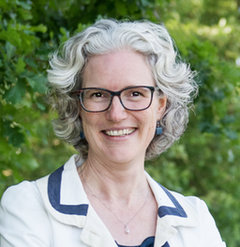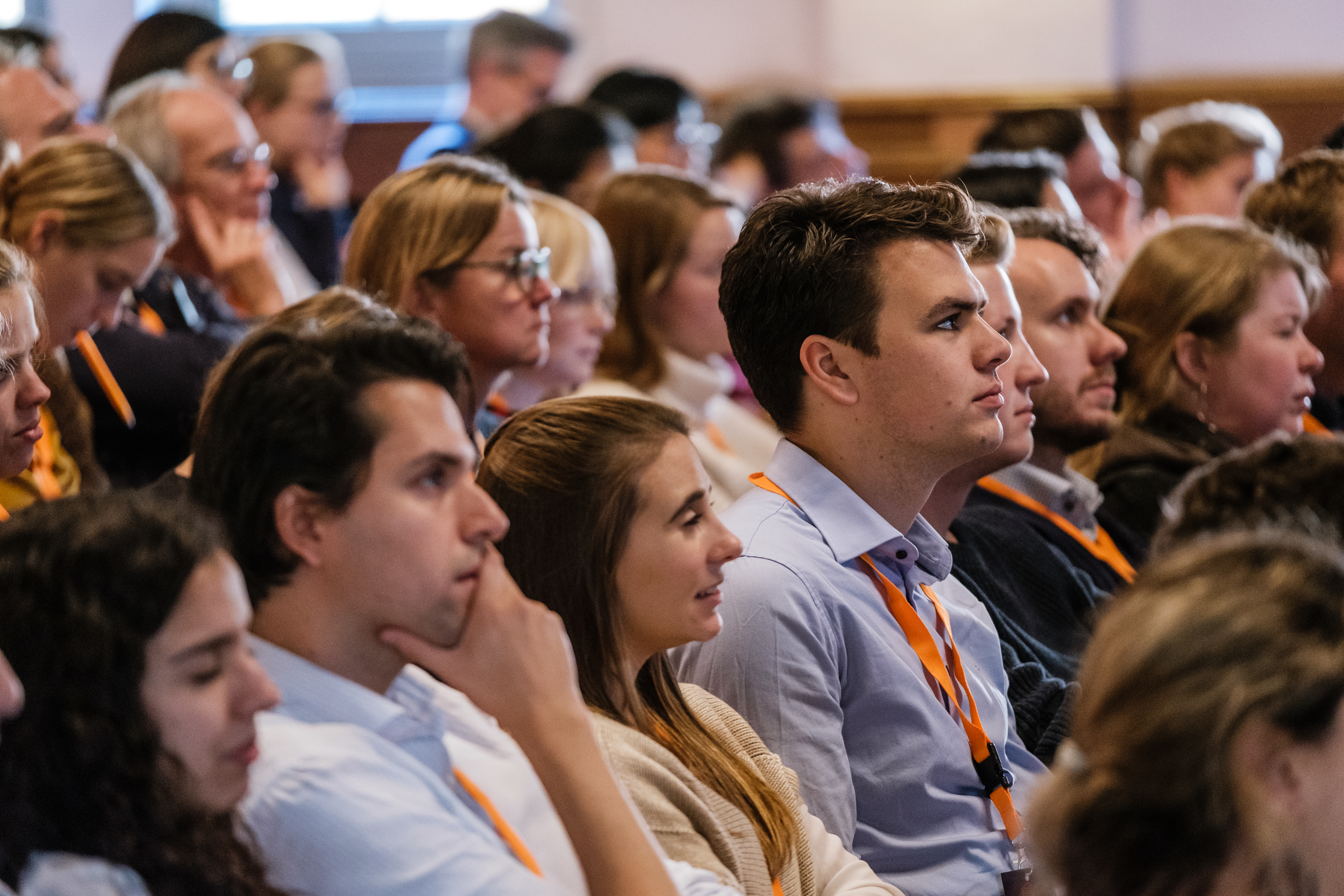Preface
A year of acceleration, connection, and progress
2024 was a year of acceleration, connection, and progress. At Oncode Institute, we work every day to accelerate scientific breakthroughs and translate them into patient impact.
The urgency is still great, but in 2024 we once again proved that our approach works. By combining scientific excellence with proactive valorisation and strong collaboration, we made tangible progress towards creating impact for cancer patients and society. The starting point is our approach, in which we invest in outstanding researchers to take them down unexplored research paths and actively encourage collaboration between institutes and disciplines. By doing so, we accelerate breakthroughs in the understanding of cancer.
Our research community is vibrant, active, and connected. Thanks to its expansion with ten excellent (young) new research group leaders, our scientific strength has grown. Our strategy is already bearing fruit. Hundreds of publications, new tools, and innovative software applications are being developed with potential clinical relevance. We can proudly look back on 2024 as a year when new fundamental insights entered the clinic and society.
New partnerships, from academia to industry, contributed to groundbreaking insights in 2024 and offered new opportunities for valorisation. Oncode Institute continues to build an ecosystem that bridges knowledge and application. Our Clinical Proof-of-Concept (CPoC) programme puts science in motion, with rapid, targeted studies that show how our investigators’ insights can make a difference for patients.
Our research community is vibrant, active, and connected. Thanks to its expansion with ten excellent (young) new research group leaders, our scientific strength has grown.
Oncode Institute accelerates the route from discovery to patient, while also creating economic value. In 2024, we filed a record number of patents. In addition, our spin-offs continued to grow. Laigo Bio, Flindr Therapeutics and Cell Control secured follow-on investments from internationally renowned investors. These successes were made possible by early validation funded by Oncode’s Technology Development Fund and the first seed money investment by the Oncode Oncology Bridge Fund. In the process, we concluded new collaborations with industry – from SMEs to big biotech and pharma – providing new opportunities for further development. It is proof that our ecosystem approach, in which science, industry, and healthcare players collaborate with one another, works. By focusing on proactive valorisation, Oncode Institute creates economic value for the Netherlands and contributes to societal earning power.
Above all, 2024 demonstrated how Oncode Institute generates new knowledge and translates it into concrete applications for patients and society. That translation, from publication to patient, from invention to spin-off, is where Oncode Institute makes a difference. We therefore look back with pride on 2024 and look forward with confidence to 2025, in which we will continue our strategy of investing, connecting, and innovating. Together with our researchers, partners, and stakeholders, we are building a future in which cancer loses its power to disrupt individuals and society.
Management summary
Management summary
A year of acceleration, connection, and impact
Oncode Institute has been bringing together top Dutch scientists and partner institutes since 2018 to accelerate the translation of groundbreaking cancer research into clinical applications.
. In 2024, Oncode Institute continued to make tangible progress in its mission to outsmart cancer. With a unique combination of excellent science, intensive collaboration, and proactive valorisation, Oncode Institute accelerated the translation of fundamental discoveries into applications that will positively impact patients and society.
Scientific breakthroughs
Oncode Institute’s research community grew with the addition of ten new Junior Investigators across ten partner institutes, increasing Oncode’s research network from 52 to 62 research teams. This growth strengthened the community’s knowledge base, enabling numerous fundamental insights to find their way into clinical applications. By the end of 2024, Oncode Investigators had published hundreds of articles and raised 66.9 million euros in external research funding. Many of the publications were among the global top ten per cent of the most cited scientific works in oncology.
Thanks to Oncode Institute funding programmes, such as its Base Research Funding and Clinical Proof-of-Concept (CPoC) programme, Oncode Investigators were able to launch innovative clinical projects and quickly achieve first clinical results. Oncode Investigator Jacco van Rheenen’s research on the influence of the menstrual cycle on the effectiveness of chemotherapy in mice is a striking example of how we build bridges between knowledge and application. The results of this fundamental research by Van Rheenen and his colleagues now form the basis for a clinical trial.
“By the end of 2024, Oncode Investigators had published hundreds of articles and raised 66.9 million euros in external research funding.”
Valorisation and economic impact
In 2024, Oncode Institute filed a record-breaking 25 new patent applications and 47 new invention registrations. Intellectual Property (IP) rights around nine inventions were licensed, and six new technology development projects were launched. Several spin-offs, including Laigo Bio, Flindr Therapeutics and Cell Control, raised millions of euros investment. New companies sCellGen and Polar Oncology were established through the Oncology Bridge Fund. Every euro invested through this fund yields an average of 14 euros in follow-on investment, creating dozens of new jobs in the biotech sector. The collaboration between Oncode Accelerator and Cancer Research Horizons further strengthened international cooperation in expertise and innovation.
Health and patient-centred innovation
Through its seminar programme, Oncode Institute strengthened the connection between research and clinical practice, including between gastrointestinal cancer research and innovative clinical development projects. When evaluating new clinical projects, Oncode’s Patient Participation Programme team actively collaborated with patient representatives, making research proposals more responsive to patients’ needs. A telling example is the work of Oncode Investigator Jeroen de Ridder to develop an artificial intelligence (AI) driven solution called Sturgeon that enables rapid molecular subclassification of central nervous system tumours prior to brain surgery, ultimately impacting patient outcomes.
Outlook
In 2025, Oncode Institute will continue to invest in excellent science, cross-border collaboration, and proactive valorisation. Thanks to its unique research ecosystem, Oncode Institute continues accelerating the path from laboratory to patient, creating economic and societal value.




